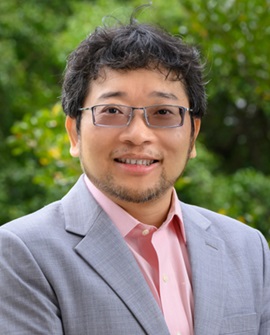Qi-Jing LI

Email: Li_Qijing@a-star.edu.sg
SUMMARY
- 2024 National Research Foundation (NRF) Investigatorship
- 2024 Industry Alignment Fund-Pre-Positioning (IAF-PP) – Panakeia
- 2024 Industry Alignment Fund-Pre-Positioning (IAF-PP) – EVANTICA
- 2024 Open Fund – Large Collaborative Grant
- 2023 NRF Competitive Research Programme (CRP)
Qi-Jing's research focuses on translational T cell biology and therapeutics, with an emphasis on understanding how tumors evade immune surveillance and developing innovative strategies to enhance T cell-mediated anti-tumor immunity. He investigates how tumors inhibit T and NK cell function both locally and systemically and explores the complex pathways of T cell differentiation and memory development in the tumor microenvironment. By dissecting key transcription factors, signaling pathways, immune checkpoints, and epigenetic programs governing T and NK cell function, his laboratory aims to develop clinically feasible strategies to counteract tumor-biased systemic immune suppression. Utilizing a combination of immunological, biochemical, and bioinformatics approaches, Qi-Jing works to enhance the efficacy of CAR-T, TCR-T, and NK cell therapies for tumors through genomic engineering and combination therapies, ultimately translating these findings into effective cancer treatments.
- Bone Metastasis Diminishes Extraosseous Responsiveness to Checkpoint Blockade Immunotherapy through Osteopontin-producing Osteoclast.
Cheng J., Jin Z., Su C., ... Li, Q-J*., Jia Q.,*, Zhu., B.* (2025)
Cancer Cell. S1535-6108(25)00137-0
(*: Corresponding authors, PMID: 40280123). - Supercharging CAR-T Cells: Transcriptional and Epigenetic Armoring.
Diyuan Qin, Yanna Lei, Pei Shu, Yugu Zhang, Yuin-Han Loh, Yongsheng Wang*, Qi-Jing Li*. (2025)
Theranostics.15(8):3345-3367
(*: Corresponding authors, PMID: 40093905 PMCID: PMC11905144) - IL-1 Signaling in Aging and Cancer: An Inflammaging Feedback Loop Unveiled.
Liu M., Zhu B., and Li Q.-J. (2024)
Cancer Cell S1535-6108(24)00363-5. PMID: 39423815. - Aberrant cytoplasmic expression of UHRF1 restrains the MHC-I-mediated anti-tumor immune response.
Tan L, Yin T, etc., Li Q.-J. *, and Wang X.-F. * (2024)
Nat Commun 15(1):8569.
(*: Corresponding authors, PMID: 39362877; PMCID: PMC11450162) - Breaking NGF-TrkA immunosuppression in melanoma sensitizes immunotherapy for durable memory T cell protection.
Yin T. #, Wang G. #, Wang L., Mudgal P., Wang E., Pan C.C., Alexander P.B., Wu H., Cao C., Liang Y., Tan L., Huang D., Chong M., Chen R., Lim B.J.W., Xiang K., Xue W., Wan L., Hu H., Loh Y.H., Wang X.F., Li Q.-J.* (2024)
Nature Immunology
(*: Corresponding authors; PMID: 38195702)
- B-Lightning: using bait genes for marker gene hunting in single-cell data with complex heterogeneity.
Shao Y, Gao Q, Wang L, Li D, Nixon AB, Chan C, Li Q-J, Xie J. (2024)
Brief Bioinform. 26(1):bbaf033. (PMID: 39927857)
- Nuclear Receptor-SINE B1 Network Modulates Expanded Pluripotency in Blastoids and Blastocysts.
Wong KW, Zeng Y, Tay E, Teo JHJ, Cipta NO, Hamashima K, Yi Y, Liu H, Warrier T, Le MTN, Ng SC, Li QJ, Li H, Loh YH. (2024)
Nat Commun, PMCID: PMC11577042 - Necroptosis stimulates interferon-mediated protective anti-tumor immunity.
Rucker AJ, Park CS, Li Q-J., Moseman EA, Chan FK. (2024)
Cell Death Dis. 15(6):403.
- SifiNet: a robust and accurate method to identify feature gene sets and annotate cells.
Gao Q, Ji Z, Wang L, Owzar K, Li Q-J, Chan C, Xie J. (2024)
Nucleic Acids Res 22;52(9):e46.
- Cancer cell-derived GABA promotes β-catenin-mediated tumour growth and immunosuppression.
Huang D., Wang Y., Thompson J.W., Yin T., Alexander P.B., Qin D., Mudgal P., Wu H., Liang Y., Tan L., Pan C., Yuan L., Wan Y., Li Q.-J., * and Wang X.F. (2022)
Nature Cell Biology 24(2):230-241
(*: Corresponding authors, PMCID: PMC8852304)
A*STAR celebrates International Women's Day

From groundbreaking discoveries to cutting-edge research, our researchers are empowering the next generation of female science, technology, engineering and mathematics (STEM) leaders.
Get inspired by our #WomeninSTEM
.png?sfvrsn=c3edc68e_6)